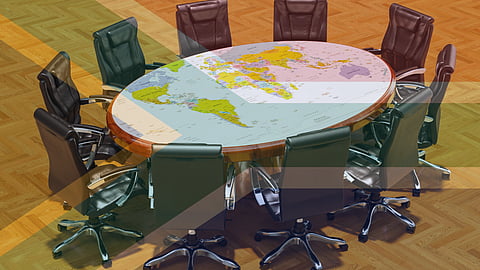John Matisonn: SA’s foreign affairs- Washington trip context, Supra elevated, Emma irritated
Despite Washington's warm reception of South Africa's GNU trade delegation, no shift in South Africa's foreign policies on Palestine, Ukraine, or relations with Russia, China, and Iran is expected. The ANC remains firmly in control of foreign policy, including its stance against Israel, with R20 million allocated for related litigation. The GNU's quick formation impressed U.S. officials, but actual policy changes remain uncertain. The outcome of AGOA renewal will hinge on U.S. politics and future negotiations.
Sign up for your early morning brew of the BizNews Insider to keep you up to speed with the content that matters. The newsletter will land in your inbox at 5:30am weekdays. Register here.
Join us for BizNews' first investment-focused conference on Thursday, 12 September, in Hermanus, featuring top experts like Frans Cronje, Piet Viljoen, and more. Get insights on electricity and exploiting SA's gas bounty from new and familiar faces. Register here.
By John Matisonn
Washington's warm embrace of South Africa's GNU trade delegation last month does not signal any change in South African foreign policies on Palestine, Ukraine or relations with Russia, China or Iran. At least not yet.
___STEADY_PAYWALL___

